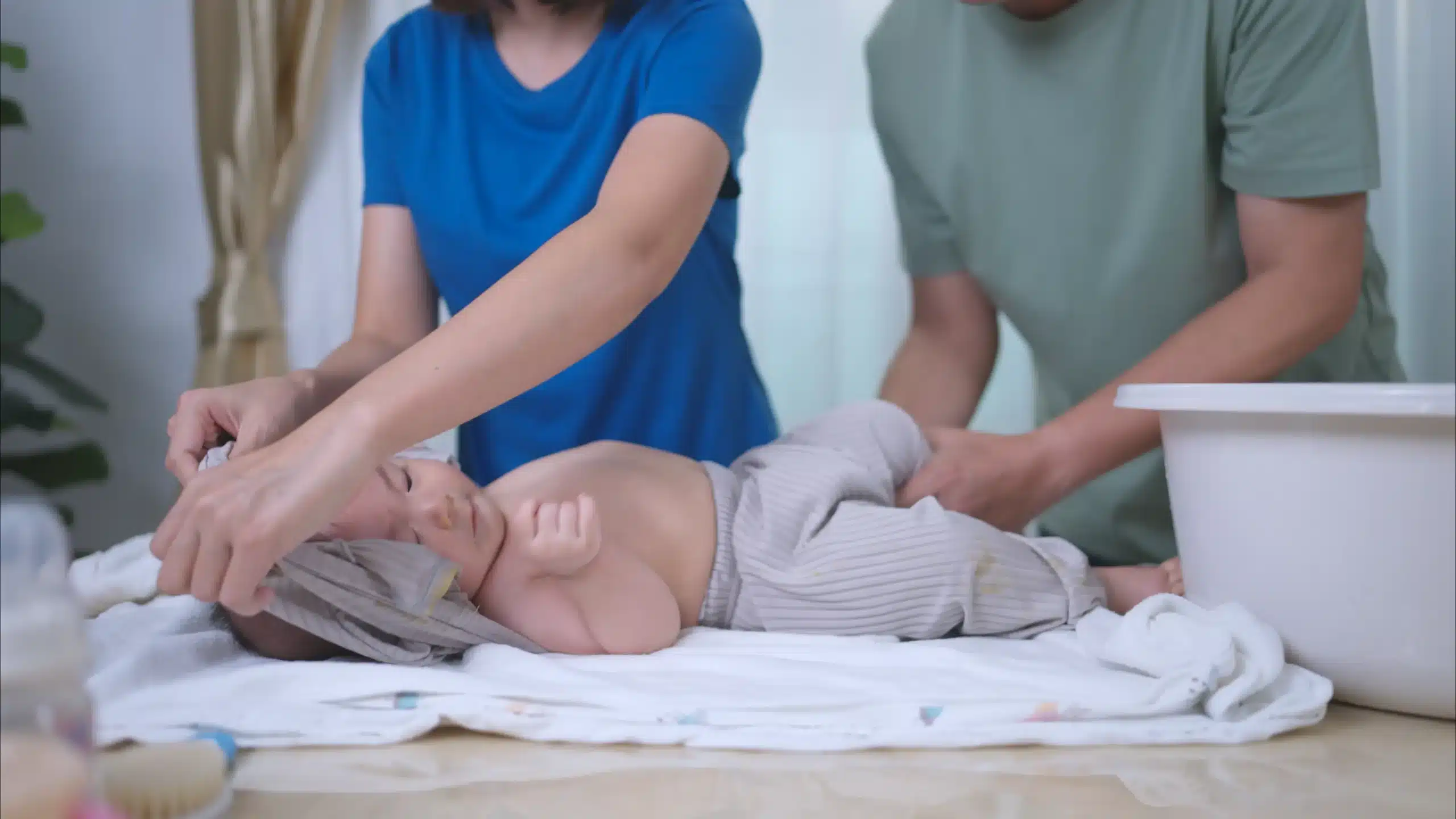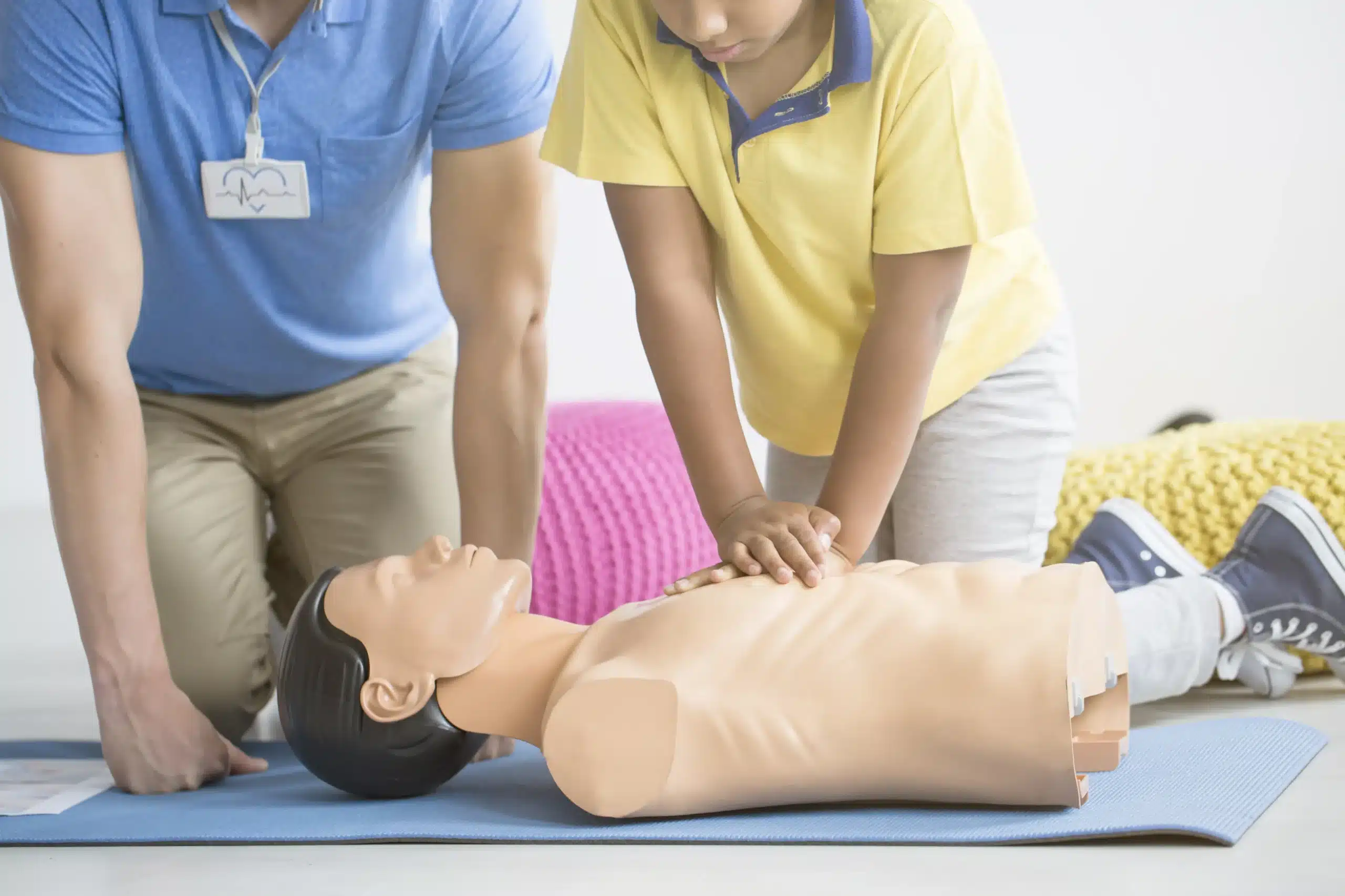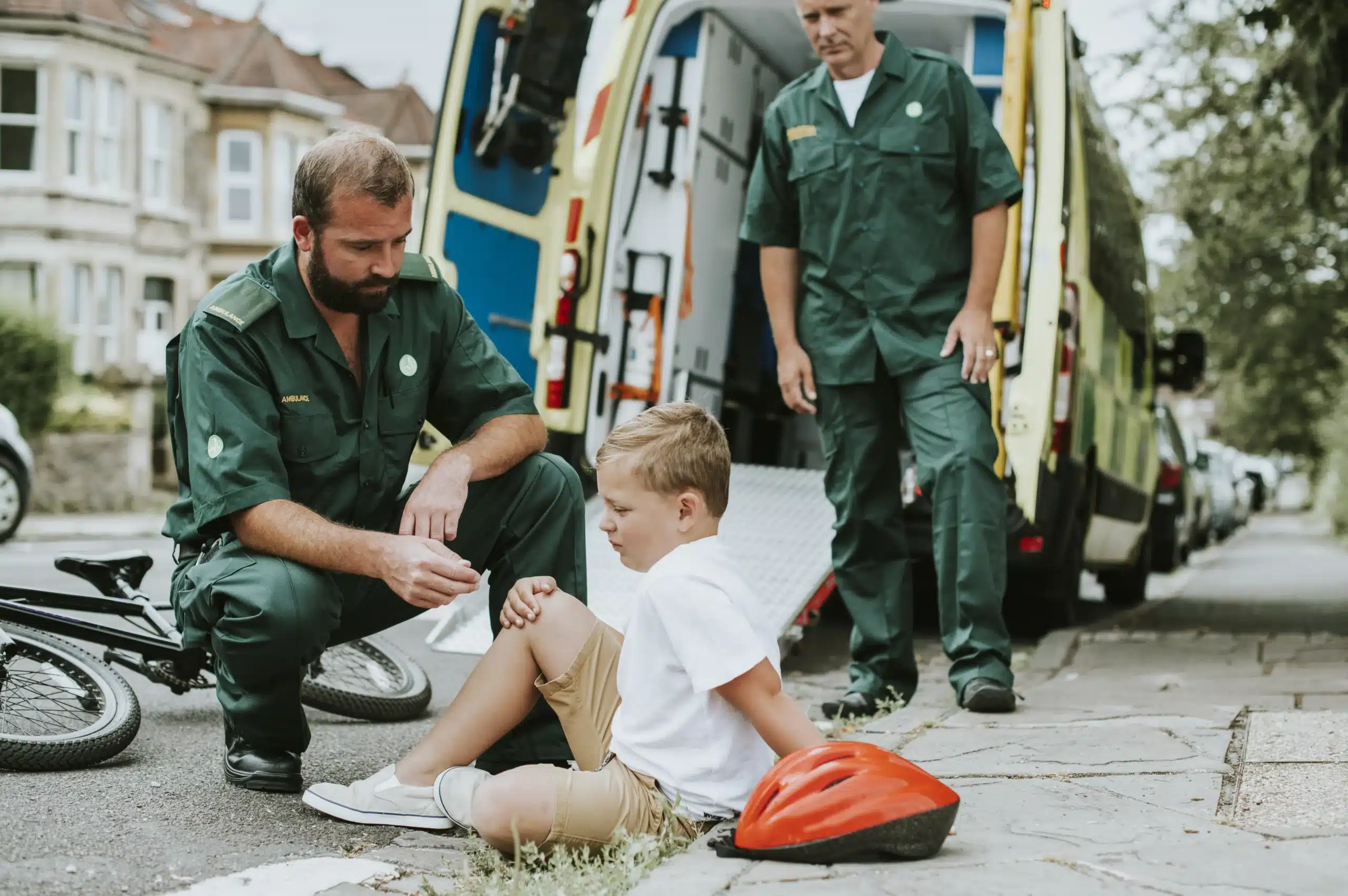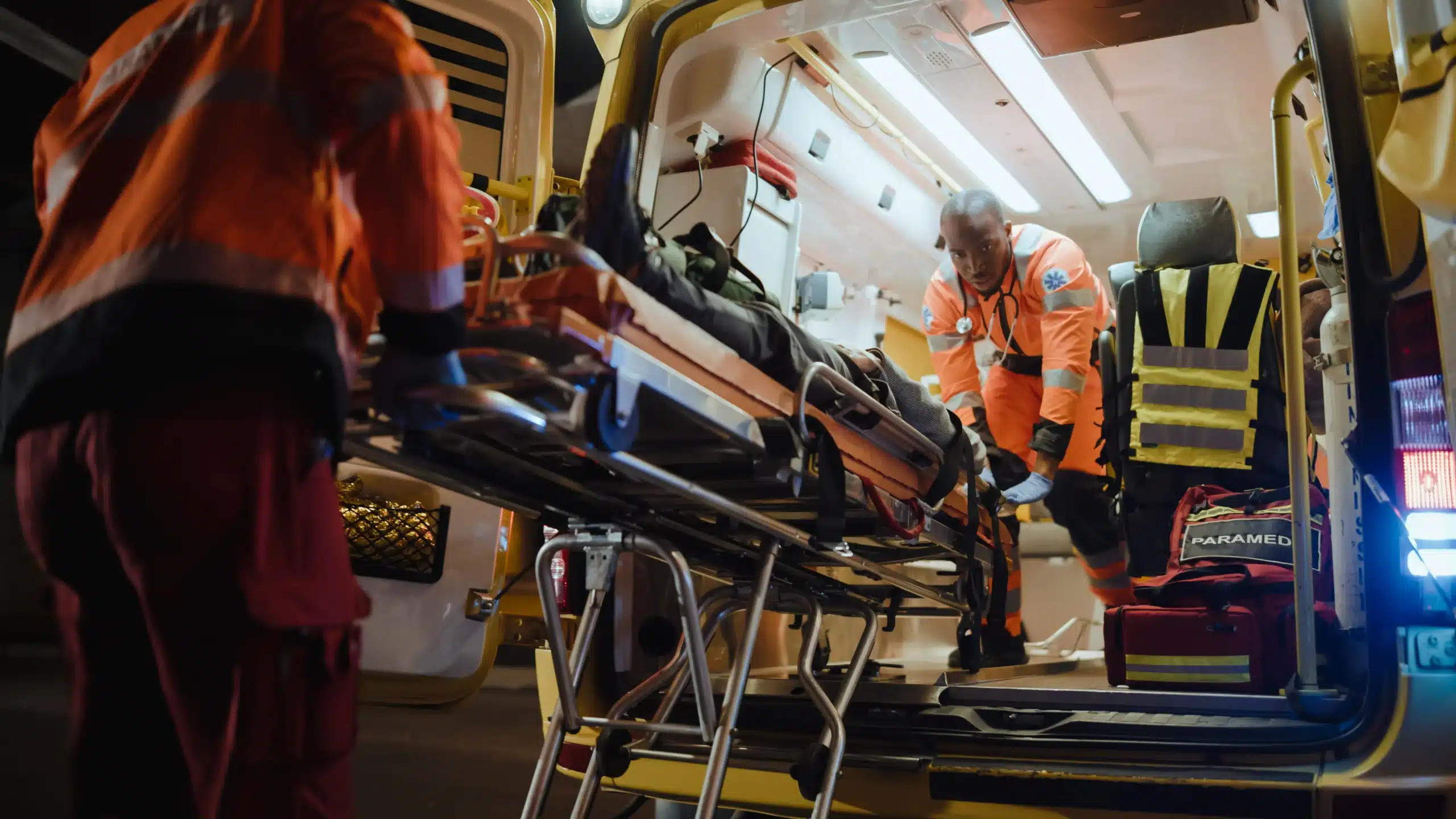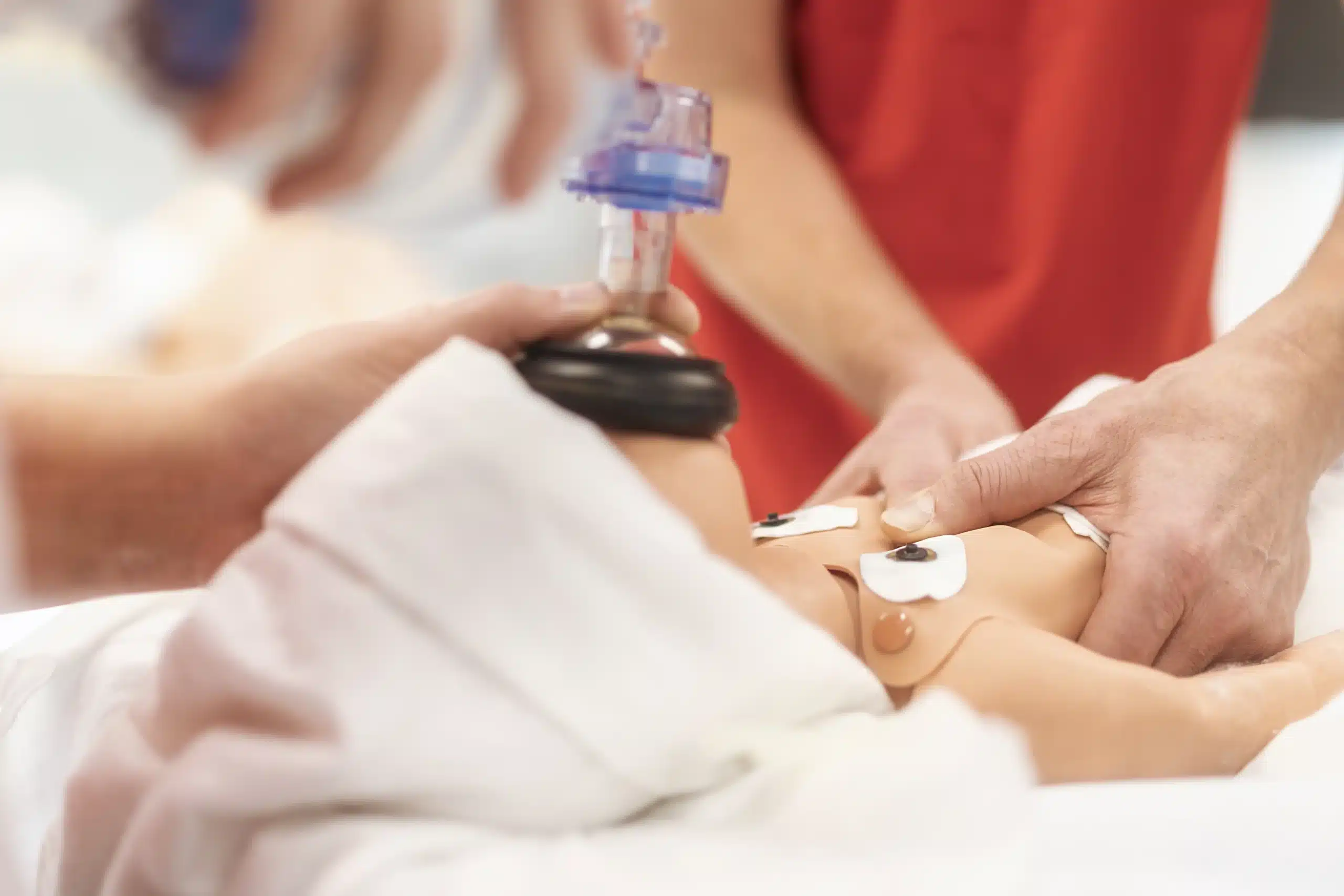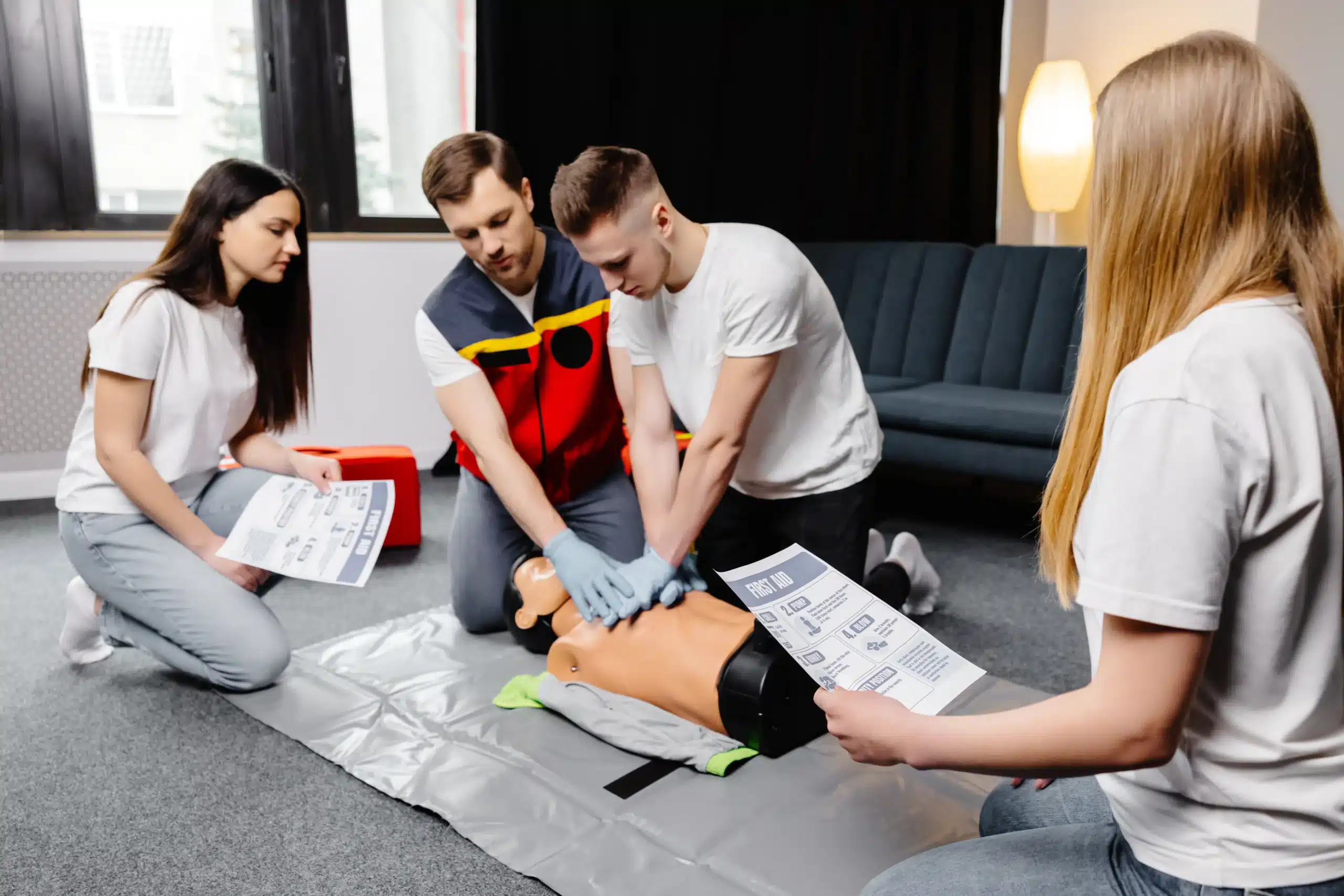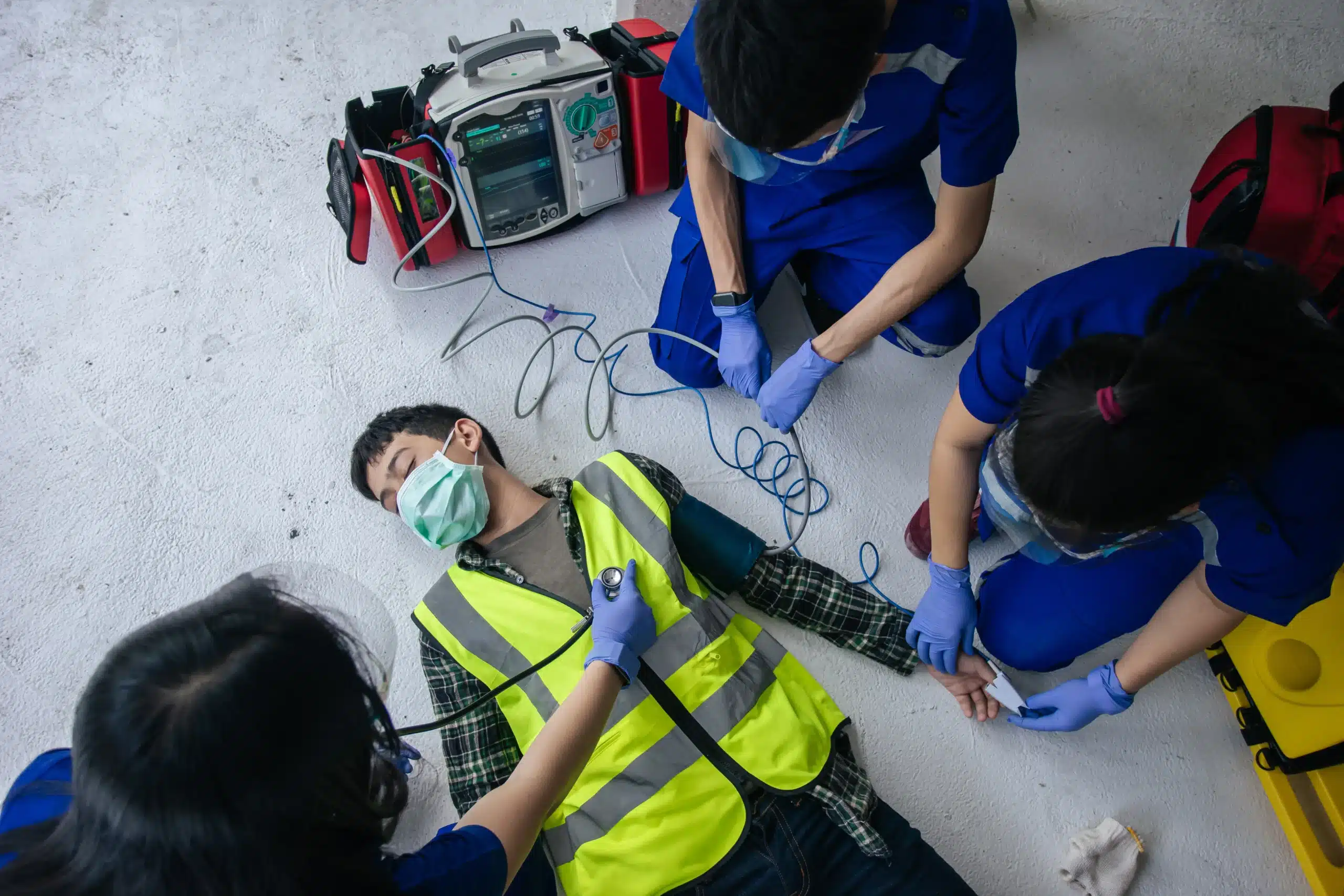Think about it: you’re the first line of defense in a pediatric emergency. Your skills and quick thinking can make all the difference. PALS certification courses in Morgan Hill provide the advanced training you need to confidently manage these high-pressure situations. This article explores the ins and outs of PALS certification, from understanding the key skills to finding the right course in Morgan Hill that fits your schedule and learning style. We’ll also cover course preparation, costs, and the long-term benefits of PALS for your career.
Key Takeaways
- PALS certification is a career asset: It demonstrates your specialized knowledge in pediatric emergency care, making you a more competitive candidate for jobs and promotions. PALS-certified professionals are better equipped to provide high-quality care and improve patient outcomes in critical situations.
- Choose a PALS course that fits your needs: Consider factors like flexible scheduling, instructor expertise, hands-on practice opportunities, and the provider’s reputation. Blended learning formats can offer a convenient way to balance work and training. Don’t forget to explore group discounts if you’re learning with colleagues.
- Maintaining your PALS certification requires ongoing effort: Stay informed about renewal requirements and seek out continuing education opportunities to stay at the forefront of pediatric advanced life support. Regular review and refresher courses can help you retain essential skills and adapt to the latest guidelines.
What is PALS Certification?
Pediatric Advanced Life Support (PALS) certification is a specialized program designed to equip healthcare providers with the knowledge and skills to effectively manage pediatric emergencies. It focuses on the critical first few minutes of intervention for infants and children facing respiratory or cardiac arrest, shock, or other life-threatening conditions. Think of it as advanced training that builds upon the foundation of basic life support. The PALS certification emphasizes a systematic approach to assessment, intervention, and stabilization, ensuring a coordinated and timely response in emergencies.
Key PALS Skills
The PALS curriculum covers essential skills beyond basic CPR. It addresses the physiological differences between children and adults, helping healthcare professionals understand how these differences impact emergency care. PALS training teaches advanced airway management techniques specific to pediatric patients, including intubation and ventilation. It also covers effective resuscitation methods tailored to children, recognizing that their responses to cardiac and respiratory distress can vary significantly from adults. Beyond immediate interventions, PALS emphasizes effective team dynamics and communication, crucial for successful outcomes in high-pressure emergency situations.
Why Healthcare Professionals Need PALS
For healthcare providers working with infants and children, PALS certification is often a requirement. Many hospitals and healthcare facilities mandate PALS certification for their staff, particularly those in critical care units like pediatrics, neonatal care, and the emergency room. This requirement reflects the specialized nature of pediatric emergency care and the importance of having trained professionals ready to respond effectively. Holding a PALS certification demonstrates a commitment to providing the highest standard of care for young patients, reassuring both families and employers. It also ensures that healthcare professionals remain up-to-date with the latest evidence-based guidelines and best practices in pediatric advanced life support.
PALS Certification Courses in Morgan Hill
Finding the right PALS certification course in Morgan Hill is straightforward. With various providers and flexible scheduling, you can find a course that fits your needs and helps you gain these essential skills.
Course Formats & Duration
PALS courses in Morgan Hill blend online learning with in-person skills sessions. You can typically complete the online portion, which takes about 3–4 hours, at your own pace. This offers a convenient way to learn the material before demonstrating your skills in a short, 30–40 minute in-person skills check. Morgan Hill CPR Classes offers this blended format, allowing you to study when it’s best for you and then schedule your skills check at one of their testing sites.
Flexible Scheduling
Busy schedules shouldn’t prevent you from getting certified. Many providers in Morgan Hill offer daily classes, often spanning from early morning to evening. Morgan Hill CPR Classes offers classes from 7 am to 6 pm, seven days a week, while other providers may have options extending as late as 10 pm. This flexibility makes it easier to fit PALS certification into your life.
Top Morgan Hill Providers
Several reputable providers offer PALS certification in Morgan Hill. Here are a few to consider:
Morgan Hill CPR Classes
Morgan Hill CPR Classes is a woman-owned American Heart Association Training Center known for high-quality instruction and convenient scheduling. They offer various courses, including BLS, ACLS, PALS, CPR, and First Aid, catering to various healthcare needs.
Bay Area CPR
Bay Area CPR provides AHA-certified PALS courses in Morgan Hill, offering both online and in-person learning formats. Their flexible options make training more accessible for busy professionals.
ACLS Now
ACLS Now emphasizes the importance of PALS certification for healthcare professionals, particularly those in pediatric emergency management. While they may not be locally based in Morgan Hill, their focus on the value of PALS highlights the significance of this certification.
Other Local Providers
Beyond these providers, many other local training centers offer PALS certification. Many, including Morgan Hill CPR Classes, offer group discounts for PALS HeartCode, making it a more affordable option for teams or organizations. Research can help you find the best fit for your budget and learning style.
What to Expect in a PALS Course
Taking a PALS course involves a blend of online learning and hands-on skill assessment. This format offers flexibility and ensures you grasp both the theory and practical application necessary for pediatric advanced life support.
Online & Self-Paced Learning
The PALS course begins with a self-paced online component. This means you can work through the material at your own speed and fit it around your existing schedule. The online portion typically requires three to four hours to complete and covers essential concepts and procedures. This flexible structure accommodates various learning styles and is particularly helpful for busy professionals. After completing the online modules, you’ll move on to the in-person skills assessment. Learn more about our PALS courses on our website.
In-Person Skills Assessment
The in-person skills assessment is a critical part of PALS certification. This session focuses on hands-on practice, allowing you to apply the knowledge you gained online. You’ll work with a voice-assisted manikin, which provides real-time feedback and enhances the learning experience. The skills test takes approximately 30–40 minutes. Instructors are available by phone throughout the testing process to answer questions and provide support. For more details on what to expect during the in-person portion, review our course preparation guide.
Certification Process & Validity
Once you’ve successfully completed both the online course and the in-person skills assessment, you’ll receive your PALS certification card that same day. This immediate turnaround is especially convenient if you need to show proof of certification quickly. Your PALS certification is valid for two years. After this period, you’ll need to recertify to maintain your skills and stay current with advancements in pediatric advanced life support. We offer a variety of recertification courses to help you maintain your credentials.
Prepare for Your PALS Certification
Getting ready for your PALS certification involves a few key steps. Understanding the prerequisites, gathering your study materials, and employing a few smart strategies can make a real difference in your preparation. Let’s break down how to get ready.
Prerequisites & Eligibility
Before you sign up for a PALS course, double-check that you meet the PALS class requirements. A current Basic Life Support (BLS) certification is essential, along with a background in pediatric care. This ensures you’re building on a solid foundation of lifesaving skills. If you need to refresh your BLS, many providers offer combined courses.
Required Study Materials
The PALS Provider Manual is your essential resource. Thoroughly review the manual and complete the pre-course self-assessment. This will familiarize you with the core concepts and help you pinpoint areas where you might want to focus. You can often find these PALS HeartCode study materials online or through your chosen training center. Make sure you have everything you need before your course begins.
Tips for Success
Learning with colleagues? Consider taking advantage of group discounts offered by many training centers, like Morgan Hill CPR Classes. Reading online reviews and testimonials can also offer helpful insights into different providers and course formats. Preparing for your PALS certification involves not just the material, but also choosing the right learning environment and support system. Successfully completing your PALS certification equips you with the skills to provide critical care, making a real difference in your healthcare career.
PALS Certification Costs
When considering PALS certification, understanding the costs is essential. This section breaks down the typical expenses, including course fees, potential extras, and ways to save.
Course Fees & Payment Options
At Morgan Hill CPR Classes, the PALS certification course costs $290. This covers the online learning materials, the in-person skills test, and your PALS certification card, which you’ll receive the same day you complete the course. Learn more and register on our PALS Certification page. We offer various payment options for your convenience.
Additional Expenses
While the course fee covers the core components of your PALS certification, consider potential additional expenses. For example, while our PALS course combines online learning with in-person skills sessions, some providers might require separate textbooks or study materials. Check with your chosen provider about additional costs. We outline our course preparation information on our Course Prep page.
Group Discounts & Price Matching
Looking to certify a team? Many training centers offer group discounts. Contact Morgan Hill CPR Classes to inquire about special pricing for group PALS training. We also have a low-price guarantee, ensuring you receive competitive rates in Northern California. Learn more on our Low Price Guarantee page. For larger groups, explore our Discount Group Classes for potential savings.
Choose the Right PALS Provider
Finding the right PALS provider is just as important as the certification itself. It can significantly impact your learning experience and, ultimately, your confidence in providing critical care. Take your time and do your research to ensure you find a program that fits your needs and learning style.
Factors to Consider
Beyond the basic PALS certification requirements, think about what you need to succeed. Do you learn best in a smaller class setting? Do you need a flexible schedule? Consider factors like class size, location, course format (blended learning, online, or traditional classroom), and the overall program cost. If you’re a healthcare professional working in a pediatric emergency management unit, make sure the provider offers the American Heart Association RQI program. This will keep your skills sharp and your certification current. For those in Morgan Hill, San Jose, or Gilroy, Morgan Hill CPR classes offer a variety of options.
Accreditation & Recognition
Look for a training center affiliated with a nationally recognized organization like the American Heart Association. The AHA’s RQI program is a popular choice for healthcare providers seeking BLS, ACLS, and PALS certification. It offers a modern, efficient approach to resuscitation training, ensuring you receive high-quality instruction and a recognized credential. Choosing an accredited provider ensures your certification meets industry standards and is widely accepted.
Student Reviews & Testimonials
Before committing to a PALS course, check out what other students have to say. Online reviews and testimonials offer valuable insights into the quality of instruction, the learning environment, and the overall experience. Look for comments about clear communication, instructor expertise, and the helpfulness of the course materials. Sites like Yelp can be a great resource for finding honest feedback from past students. A provider with consistently positive reviews is a good sign you’re making a smart choice.
The PALS Certification Experience
Choosing the right PALS course can make the difference between a stressful experience and one that leaves you feeling confident and prepared. It all comes down to expert instruction and hands-on practice.
Instructor Expertise
PALS certification is crucial for healthcare providers working with infants and children. The training equips you with the skills to manage pediatric emergencies. Expert instructors, often experienced healthcare professionals themselves, bring real-world insights to the classroom. They can offer practical advice tailored to your needs. Morgan Hill CPR Classes stands out with its American Heart Association RQI program, a modern and efficient path to AHA PALS certification. This ensures instructors are up-to-date on the latest resuscitation guidelines.
Hands-on Practice
Beyond textbooks and lectures, hands-on practice is key to mastering PALS skills. PALS certification provides opportunities to apply your knowledge in simulated emergency scenarios. This practical experience builds confidence and competence, preparing you to respond effectively under pressure. The combination of online learning and in-person skills testing offered by providers like Morgan Hill CPR Classes creates a well-rounded learning experience. This blended approach bridges the gap between theory and practice, ensuring you can execute skills confidently in real-life situations.
Maintain Your PALS Certification
Earning your PALS certification is a significant accomplishment, but staying current is essential for providing the best possible care. This section covers what you need to know about renewals and continuing education to maintain your PALS qualification.
Renewal Requirements
PALS certification is valid for two years. To maintain your certification, complete a renewal course before it expires. Many hospitals and healthcare organizations require current PALS certification, especially for roles in critical care units like pediatrics, neonatal care, and the emergency room. Check with your employer or state licensing board for specific requirements. Renewing your PALS certification promptly helps avoid gaps in your qualifications and ensures you’re always prepared to respond to pediatric emergencies.
Continuing Education
Staying sharp in pediatric advanced life support goes beyond renewing your certification every two years. Continuing education is crucial for healthcare providers to refine their skills and stay abreast of evolving medical practices. Many PALS courses offer continuing education credits, which can contribute to your professional development requirements. Look for engaging programs that use technology like simulations and interactive modules to maximize learning and knowledge retention. These dynamic learning experiences can significantly improve your ability to provide effective care in emergencies. Morgan Hill CPR Classes offers a variety of continuing education opportunities to help you stay at the top of your game. You can explore our course options on our website.
PALS Certification & Career Growth
PALS certification, or Pediatric Advanced Life Support, goes beyond a simple credential—it’s a significant investment in your healthcare career and the lives of your young patients. Whether you’re just starting out or are a seasoned professional, PALS can open doors and deepen your ability to provide exceptional care.
Career Advancement
For healthcare providers working with infants and children, PALS certification is often a job requirement. It signals to employers your specialized knowledge and preparedness to handle pediatric emergencies. Holding a PALS certification can give you a competitive edge when applying for jobs in emergency rooms, pediatric intensive care units (PICUs), and other specialized pediatric settings. PALS certification can also lead to promotions and increased earning potential as you demonstrate your commitment to advanced skills and patient care. Before enrolling in a course, make sure you meet all the certification requirements.
Improved Patient Care
Beyond career advancement, PALS certification equips you with the skills to confidently manage pediatric emergencies. The training covers a wide range of topics, from recognizing early signs of distress to providing appropriate interventions for respiratory and cardiac events. PALS training emphasizes the physiological differences between children and adults, giving you the knowledge to tailor your care to the specific needs of young patients. This specialized training can significantly improve patient outcomes and give you the confidence to act decisively in critical situations. Understanding the nuances of pediatric physiology and common childhood health complications is essential for providing effective care during emergencies. With PALS, you’re not just gaining a certification—you’re gaining the tools to make a real difference.
Overcome PALS Certification Challenges
PALS certification is a valuable asset for healthcare professionals, but the process can present challenges. Let’s explore common hurdles and practical strategies to overcome them, so you can succeed in your PALS training.
Time Management Strategies
One of the biggest hurdles for healthcare providers is balancing demanding schedules with the time commitment required for PALS training. Efficient time management is key. Break down the PALS course content into smaller, manageable chunks. Instead of cramming everything in at once, dedicate shorter, more focused study periods throughout the week. This approach can make the material less daunting and easier to absorb. Use a calendar or scheduling app to block out specific times for studying, treating them like important appointments. Also, explore online or blended learning options, like those offered by Morgan Hill CPR Classes, for more flexibility.
Handling Complex Content
PALS covers a wide range of complex topics, from pediatric physiology to advanced life support techniques. It’s understandable to feel overwhelmed by the information. Focus on understanding the underlying principles rather than rote memorization. When you grasp the “why” behind the procedures, it becomes easier to remember and apply them. Visual aids, such as diagrams and flowcharts, can be incredibly helpful. Many PALS courses, including those from providers like Morgan Hill CPR Classes, incorporate these visual aids. Don’t hesitate to ask your instructor for clarification on any challenging concepts.
Skill Retention Techniques
Retaining the skills learned during PALS certification is crucial for effective patient care. Hands-on practice and simulation exercises are invaluable for solidifying knowledge and building confidence. These simulations offer a safe environment to apply your skills in realistic scenarios, developing muscle memory and critical thinking abilities. Regularly review the PALS material after completing the course for long-term retention. Consider joining a study group or taking refresher courses to stay sharp and up-to-date with the latest guidelines. Preparing for your course ahead of time can also significantly improve skill retention.
Related Articles
- PALS Certification in San Jose: A Complete Guide
- PALS HeartCode Morgan Hill: Your Certification Guide – Morgan Hill CPR Classes
- PALS HeartCode in Gilroy: Training & Requirements – Morgan Hill CPR Classes
- Online PALS Classes in Morgan Hill: Your Guide – Morgan Hill CPR Classes
- Online PALS Classes in San Jose: Your Complete Guide – Morgan Hill CPR Classes
Frequently Asked Questions
What is the difference between PALS and BLS?
BLS (Basic Life Support) teaches fundamental life-saving skills, such as CPR and using an AED. PALS (Pediatric Advanced Life Support) builds upon this foundation, focusing on the specialized care of infants and children in emergency situations. It delves into advanced techniques like airway management and medication administration specifically for young patients.
How long does it take to get PALS certified?
You can complete the online portion of the PALS course in about 3-4 hours at your own pace. The in-person skills check takes around 30-40 minutes. Many providers offer same-day certification upon successful completion of both components.
How much does PALS certification cost?
The cost of PALS certification varies depending on the provider and location. It typically ranges from $250 to $350, covering the online learning materials, in-person skills check, and certification card. Some providers offer group discounts or price matching, so it’s always a good idea to compare options.
How often do I need to renew my PALS certification?
PALS certification is valid for two years. You’ll need to take a recertification course before it expires to maintain your credentials and stay up-to-date with the latest guidelines in pediatric advanced life support.
What if I don’t work in a hospital setting? Do I still need PALS?
While PALS is often a requirement for hospital-based healthcare providers, it can be beneficial for anyone working with children in a medical or emergency response capacity. School nurses, paramedics, and other first responders can greatly benefit from the specialized knowledge and skills PALS provides. Even if it’s not mandatory for your role, PALS certification demonstrates a commitment to providing the highest standard of care for young patients.
